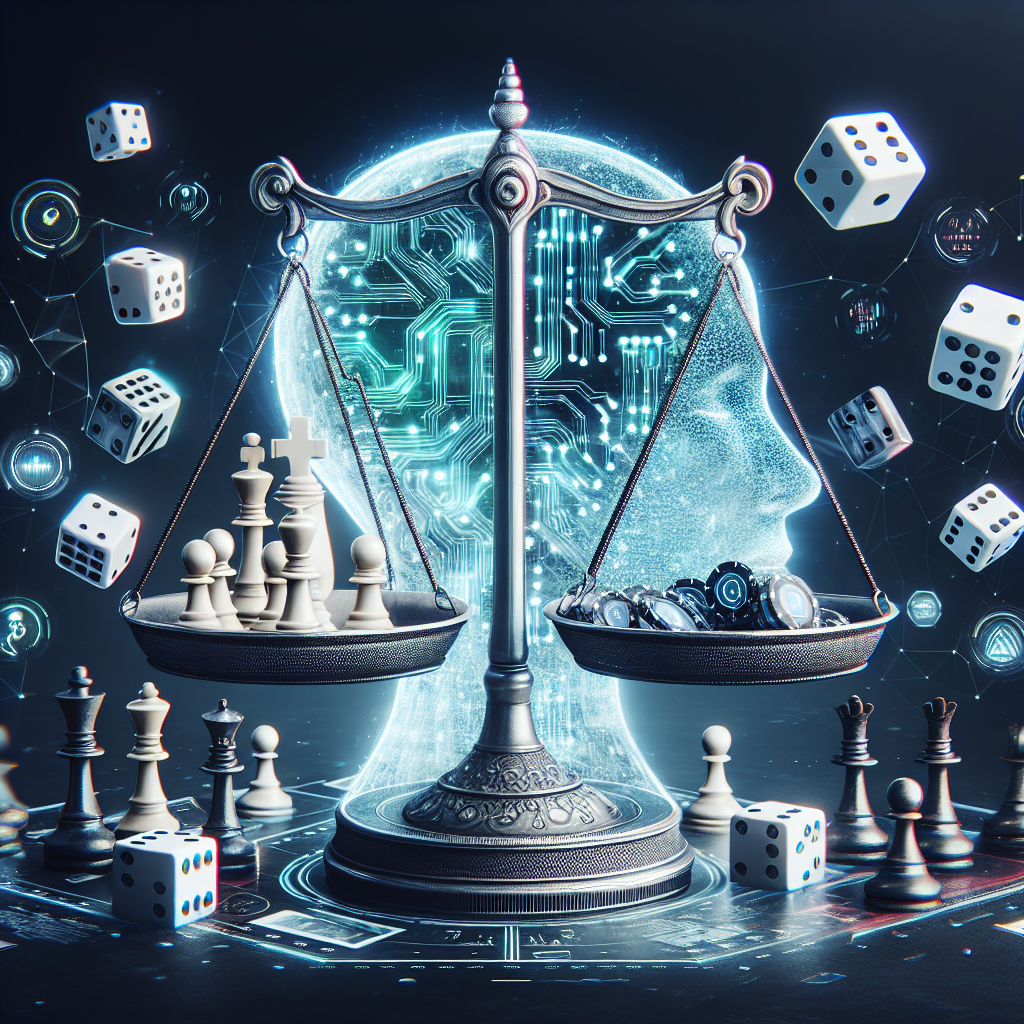In recent years, artificial intelligence (AI) has become increasingly prevalent in the gaming industry, particularly in the realm of game monetization. AI technology has revolutionized the way games are monetized, providing developers with powerful tools to analyze player behavior, personalize in-game experiences, and optimize revenue streams. In this article, we will explore the role of AI in game monetization, its benefits, challenges, and future potential.
Role of AI in Game Monetization
AI has had a significant impact on game monetization through its ability to analyze vast amounts of data and predict player behavior. By leveraging AI algorithms, game developers can gain insights into player preferences, purchasing patterns, and engagement levels, allowing them to tailor in-game offers and promotions to individual players. This level of personalization enhances the player experience, increases player engagement, and ultimately drives revenue growth.
One of the key ways AI is used in game monetization is through the implementation of dynamic pricing strategies. AI algorithms can analyze player data in real-time to determine the optimal pricing for in-game items, virtual currencies, and other monetization opportunities. By adjusting prices based on player behavior and market trends, developers can maximize revenue while ensuring a positive player experience.
AI-powered recommendation engines are another valuable tool for game monetization. These engines analyze player behavior and preferences to recommend relevant in-game purchases, content, and promotions. By serving up personalized recommendations, developers can increase conversion rates and drive higher revenue per user.
Furthermore, AI is used to optimize ad placement within games, ensuring that ads are displayed at the most effective times and in the most engaging formats. By analyzing player behavior and interaction with ads, developers can maximize ad revenue while minimizing player disruption.
Benefits of AI in Game Monetization
The use of AI in game monetization offers a range of benefits for developers, publishers, and players alike. Some of the key benefits include:
1. Increased Revenue: By leveraging AI to personalize in-game offers, optimize pricing, and target ads, developers can maximize revenue streams and drive higher profits.
2. Enhanced Player Engagement: AI-powered recommendation engines and personalized experiences can increase player engagement, retention, and satisfaction, leading to a more loyal player base.
3. Improved Monetization Strategies: AI algorithms can analyze player data and market trends to inform more effective monetization strategies, ensuring that developers are maximizing revenue opportunities.
4. Data-Driven Decision Making: AI provides developers with valuable insights into player behavior and preferences, enabling data-driven decision making that can drive revenue growth and optimize player experiences.
Challenges of AI in Game Monetization
While AI offers numerous benefits for game monetization, there are also challenges and considerations that developers must address. Some of the key challenges include:
1. Data Privacy and Security: As AI algorithms rely on vast amounts of player data to personalize experiences and optimize monetization strategies, developers must prioritize data privacy and security to protect player information.
2. Player Trust: Implementing AI-powered monetization strategies can sometimes lead to concerns about fairness, transparency, and player manipulation. Developers must be transparent about how AI is being used and ensure that players feel comfortable with the monetization tactics employed.
3. Algorithm Bias: AI algorithms can be prone to bias, leading to unfair or discriminatory outcomes. Developers must carefully monitor and address algorithm bias to ensure that in-game offers and promotions are equitable and inclusive.
4. Implementation Costs: Developing and implementing AI-powered monetization strategies can be costly and time-consuming. Developers must weigh the potential benefits against the investment required to implement AI technologies effectively.
Future Potential of AI in Game Monetization
Looking ahead, the role of AI in game monetization is only expected to grow as developers continue to innovate and experiment with new technologies. Some of the future potential for AI in game monetization includes:
1. Advanced Personalization: AI will enable even more advanced levels of personalization in games, tailoring experiences to individual player preferences and behaviors in real-time.
2. Predictive Analytics: AI algorithms will become even more sophisticated in predicting player behavior, enabling developers to anticipate player needs and preferences before they even realize them.
3. Virtual Assistants: AI-powered virtual assistants within games could provide players with personalized recommendations, tips, and offers, enhancing the overall player experience and driving engagement.
4. Blockchain Integration: AI and blockchain technologies could be combined to create secure, transparent, and decentralized monetization systems that empower players to own and trade in-game assets.
FAQs
1. How does AI analyze player behavior in games?
AI analyzes player behavior by collecting and analyzing vast amounts of data, such as player actions, interactions, preferences, and purchasing patterns. By processing this data with machine learning algorithms, AI can identify trends, patterns, and insights that inform personalized monetization strategies.
2. How can developers ensure that AI-powered monetization strategies are fair and transparent?
Developers can ensure fairness and transparency in AI-powered monetization strategies by being transparent about how AI is being used, providing players with clear information about in-game offers and promotions, and implementing safeguards to prevent bias and discrimination.
3. What are some examples of AI-powered monetization strategies in games?
Some examples of AI-powered monetization strategies in games include dynamic pricing, personalized recommendations, targeted ads, and virtual assistants that provide players with personalized offers and tips.
4. How can AI benefit players in terms of game monetization?
AI can benefit players by providing personalized offers and promotions that are tailored to their preferences, enhancing the overall player experience, and optimizing in-game pricing to ensure fair and engaging monetization opportunities.
In conclusion, AI has become an indispensable tool for game developers looking to optimize monetization strategies, personalize player experiences, and drive revenue growth. By leveraging AI algorithms to analyze player behavior, predict trends, and optimize in-game offers, developers can create more engaging, profitable, and sustainable games. While challenges and considerations exist, the future potential of AI in game monetization is vast, offering exciting opportunities for innovation and growth in the gaming industry.

